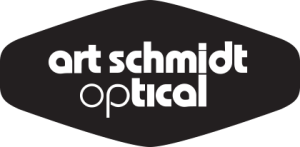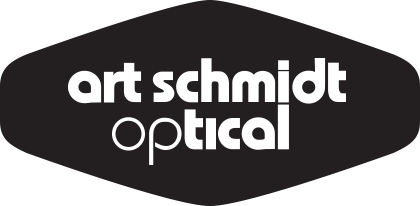Frequently asked questions
What is the benefit of working with a licensed optician?
A licensed optician is a specialist in optics and has the expertise you need when looking for advice on all optical products including glasses, sunglasses, sport-specific and protective eyewear and contacts. Opticians obtain accreditation through a rigorous training program, and are required to update credentials on an annual basis. All opticians must meet the requirements of the National Association of Canadian Optician Regulators (NACOR) and are overseen by the College of Opticians in BC.
A licensed optician is trained to prepare and dispense optical products such as glasses and contact lenses through interpretation of corrective prescriptions. After assessing your prescription, opticians can advise you on the best possible lens solution for crisp and clear vision. Opticians can help you select the right frame for your facial structure and features, with an eye for shape, colour, size and lifestyle that is best suited for you. Finally, opticians can make all the necessary adjustments to your eyewear to ensure that they fit properly and comfortably to give you crisp and clear vision.
The opticians at Art Schmidt Optical are committed to providing you with optimal vision, comfort and an eyewear design that is a signature of your personal style.
Why should I see an optician for my contact lenses?
Contact lenses have come a long way in the past few decades. Today’s lenses accommodate all kinds of vision requirements to provide clear vision and so much comfort, you almost forget you’re wearing them.
Achieving that comfort and clear vision requires an expert fitting and consideration of your eye requirements. Do you have dry eyes? Do you have astigmatism? What cleaning regime is best? Our experienced and skilled opticians carefully consider many factors to identify the right brand and correct fit for your eyes.
Our expert licensed contact lens specialists take the time needed to ensure you’ve got the right fit, and may even provide you with samples to achieve that fit. During your evaluation, we also make sure you understand how to best clean, store and handle your contact lenses to increase their lifespan and protect your eye health.
You can feel confident that the expert opticians at Art Schmidt Optical have provided you with the best possible contact lenses for your vision needs.
A licensed optician is trained to prepare and dispense optical products such as glasses and contact lenses through interpretation of corrective prescriptions. After assessing your prescription, opticians can advise you on the best possible lens solution for crisp and clear vision. Opticians can help you select the right frame for your facial structure and features, with an eye for shape, colour, size and lifestyle that is best suited for you. Finally, opticians can make all the necessary adjustments to your eyewear to ensure that they fit properly and comfortably to give you crisp and clear vision.
The opticians at Art Schmidt Optical are committed to providing you with optimal vision, comfort and an eyewear design that is a signature of your personal style.
How can different types of glasses enhance my lifestyle?
- a spare pair with your current prescription – just in case of loss or damage to your primary pair
- a transitions pair – for those days when you are on the move from bright sunshine to an indoor setting, these lenses adjust to changes in light automatically by darkening in sunlight, and adjusting to clear indoors. These lenses also provide UVA/UVB protection
- prescription sunglasses – essential for UVA/UVB eye protection and driving/outdoor comfort for glasses wearers
- regular sunglasses – to wear with your contact lenses
- computer glasses – your vision correction at computer distance is likely different from distance or reading, and help prevent eye strain and eye fatigue
- activity-specific (pickleball protective eyewear, cycling wrap-arounds, prescription swim goggles, etc.) – to protect your eyes and enhance performance
- readers (which can be used for over contacts)
- a non-prescription all-purpose pair of protective eyewear is a good idea to have on hand for home repairs, cooking, and yard work
- a few just-for-fun pairs – you may not want to wear your wrap-around cycling sunglasses to the winery!
What are the different lens types available?
The licensed opticians at Art Schmidt Optical stay on the leading edge of knowledge in advanced lens technologies and designs in eyewear and contact lenses. Put their skill, knowledge and experience to work to determine which lens type will give you the best possible vision based on your prescription and lifestyle needs.
Single vision lenses
- the most common type of prescription lens are single vision lenses. They are used to correct vision in those who are nearsighted or farsighted with just one prescription power on the entire lens surface.
- Single vision reading glasses are available in different powers for your individual reading distance, which will help you read small font on labels, electronic devices and books.
Bifocal and progressive lenses
- Bifocal or progressive lenses have two prescription lenses in the same frame, separated on a single surface. The viewing area has two zones; one for reading on the lower part of the lens, and one for seeing at a distance on the upper part.
- A bifocal has a “dividing line” between the two powers which is less aesthetically pleasing for some glasses wearers, and so another choice is a progressive lens which offers a seamless transition and improved visual comfort.
- Using advanced lens technology, progressive lenses allow for clear sight in both near and far distances with one pair of glasses, eliminating the need to be switching between two pairs of glasses. From top to bottom, your eyes can quickly refocus at all distances and directions.
- Progressive lenses are a great option for reading, working at a computer or distance viewing while driving.
What is recommended for cleaning and caring for my new glasses?
Keep your eyewear in pristine condition by storing them in a case when you aren’t wearing them. We recommend cleaning them with a professional lens cleaner and the soft cloth that comes with your glasses to avoid damage such as hairline scratches. Avoid leaving your eyewear in high temperature environments such as a car on a hot day as the heat can damage both the frames and lenses.























